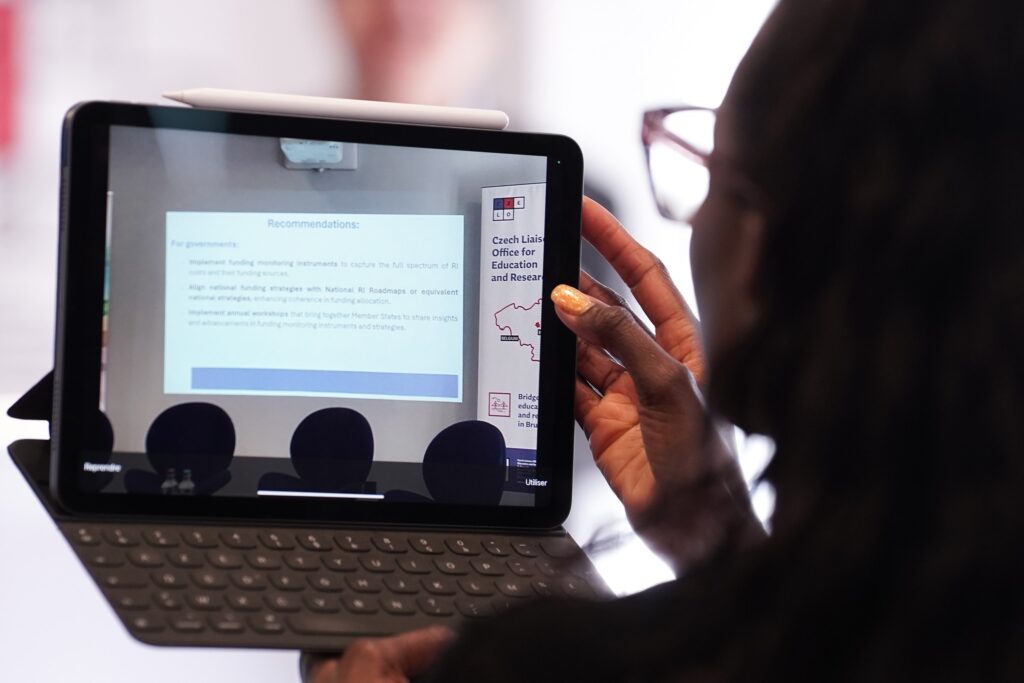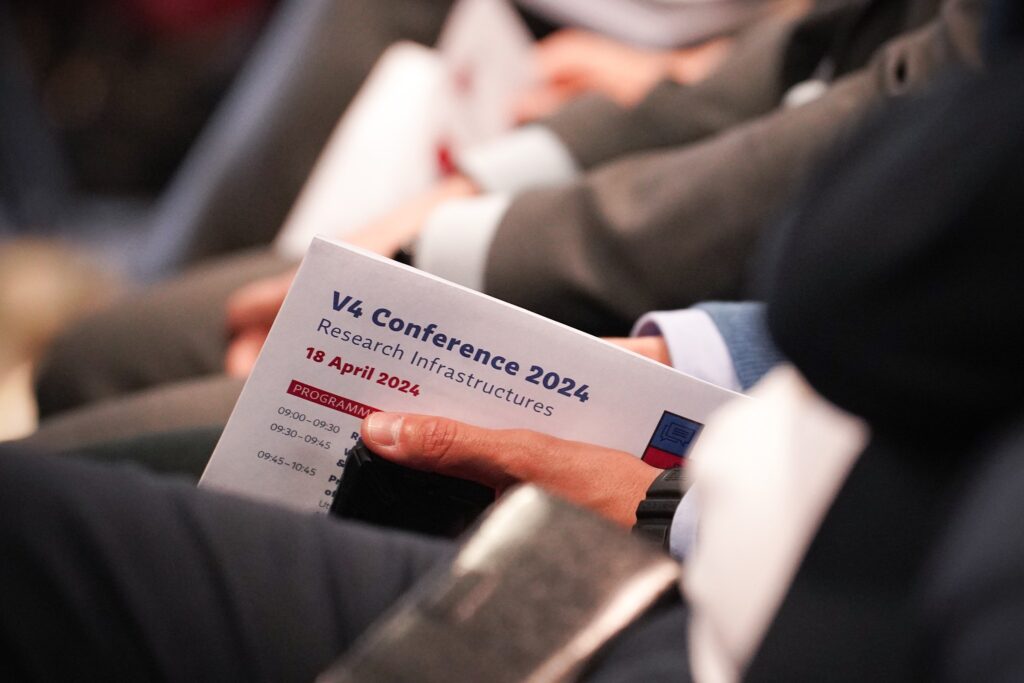
The conference of the V4 liaison offices in Brussels on European Research Infrastructures took place on 18 April 2024. The objective of the event was to present examples of Research Infrastructures operating in Poland, Czech Republic, Slovakia and Hungary and address some of the challenges that infrastructures face, such as funding and long term sustainability.
The conference was opened by José Luis Martínez, President of the European Strategic Forum for Research Infrastructures (ESFRI), who pointed out that “sometimes member states themselves do not know how much they have spent on research infrastructures, in some cases they do not even want to know.” Martínez recommended developing a clear methodology for calculating infrastructure costs and deepening understanding of national funding sources. He then recommended that member states put in place funding monitoring tools to capture the full spectrum of research infrastructure costs and funding sources, and that an annual workshop be held to share lessons learned among member states.
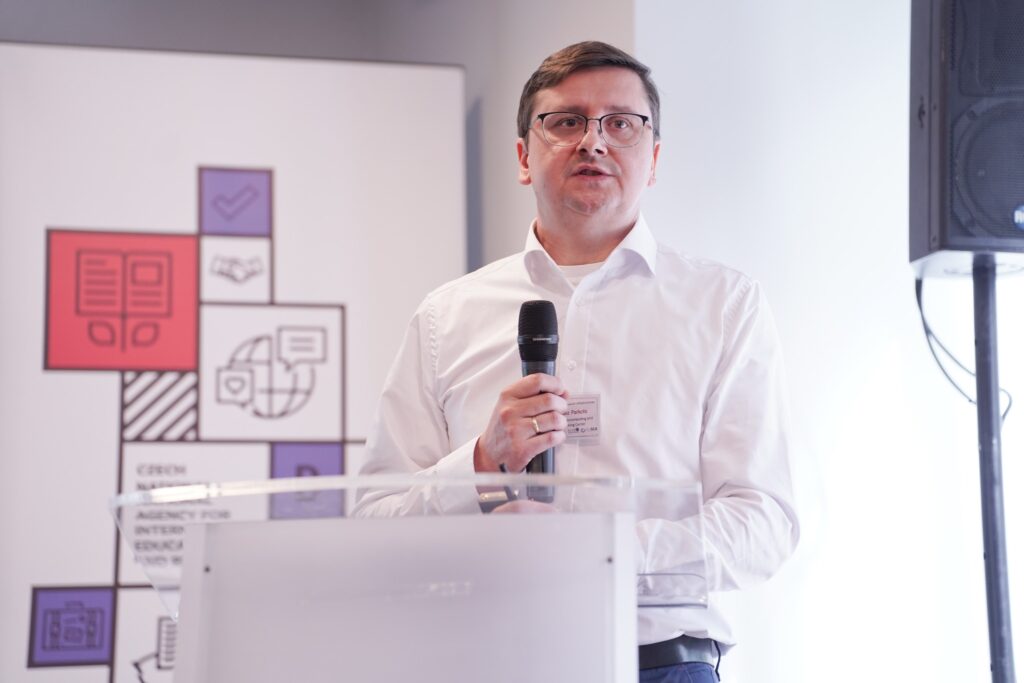
The keynote speaker was followed by presentations by representatives of selected infrastructures (ELI ERIC, EOSC, eLTER). Poland was represented in that part of the conference by Tomasz Parkoła (Poznań Supercomputing and Networking Center, affiliated at Institute of Bioorganic Chemistry PAS) who is involved in national and international research and development projects with main themes on data access & processing, long-term preservation, digitization workflows, data aggregation & interoperability and e-infrastructures (e.g. SSHOC, European DS4CH, Dariah.lab). He presented Polish SSH Research Infrastructures and their operations in the European context. Tomasz Parkoła emphasized that strong national infrastructures can contribute to the European landscape, hence get involved in the development activities and improved science practices and showed six case studies to exemplify his claim.
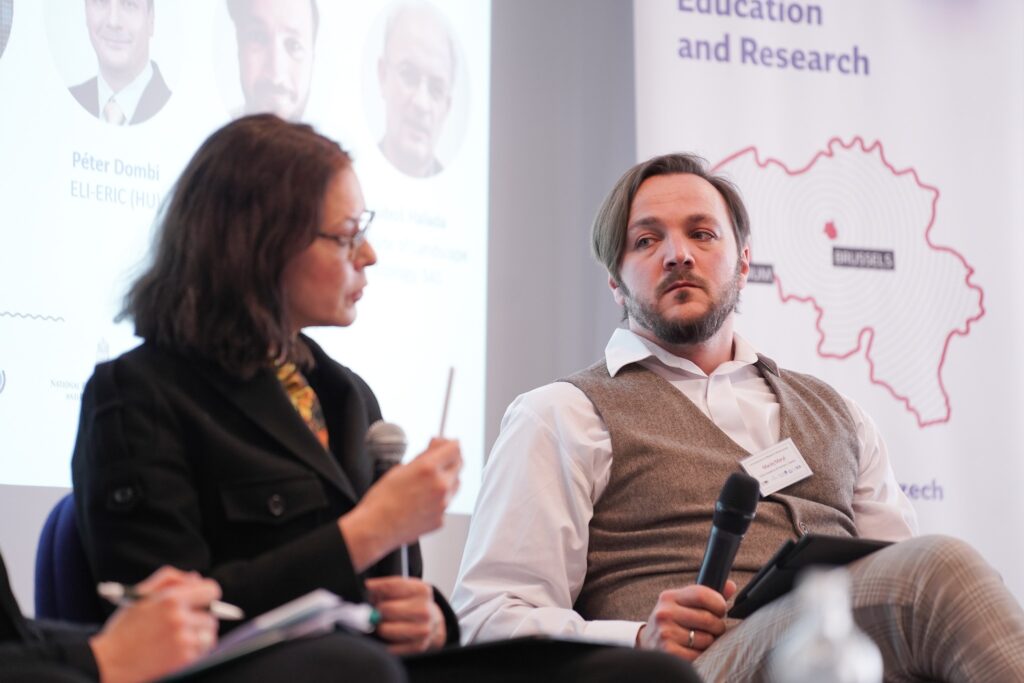
The first session was followed by a panel discussion moderated by Jana Kolar, Executive Director of CERIC-ERIC (a list of all panellists is provided at the Conference webpage). Jana Kolar stressed that research infrastructures are an excellent example of how Europe is actively pursuing the objectives of the European Research Area. She also mentioned the establishment of the European Strategic Forum for Research Infrastructures (ESFRI) as one of the first key initiatives in this area that contributed to the creation of large-scale research infrastructures. Maciej Maryl from Digital Humanities Centre at the Institute of Literary Research, PAS, who was the Polish panellist, emphasized the need for balance between funding from the EC and the members states.
As Ondřej Hradil from Masaryk University put it “[…] the situation regarding research infrastructures is starting to resemble a zoo. We have ERICs and EDICs and research clusters, which are not legal entities in themselves. On top of that, we have touched on the issue of so-called single and multi-sited research infrastructures. I am beginning to worry that this is becoming too much of a zoo in terms of the number of entities that somebody needs to run or pay for. Will this system be sustainable in the future?” That view was confirmed by Maciej Maryl pointing out that the RI landscape becomes increasingly more complex for the governments to understand the need for funding it. The other panellists agreed that a better system needs to be implemented, while emphasizing that it is good to be careful not to have a zoo with only one animal.
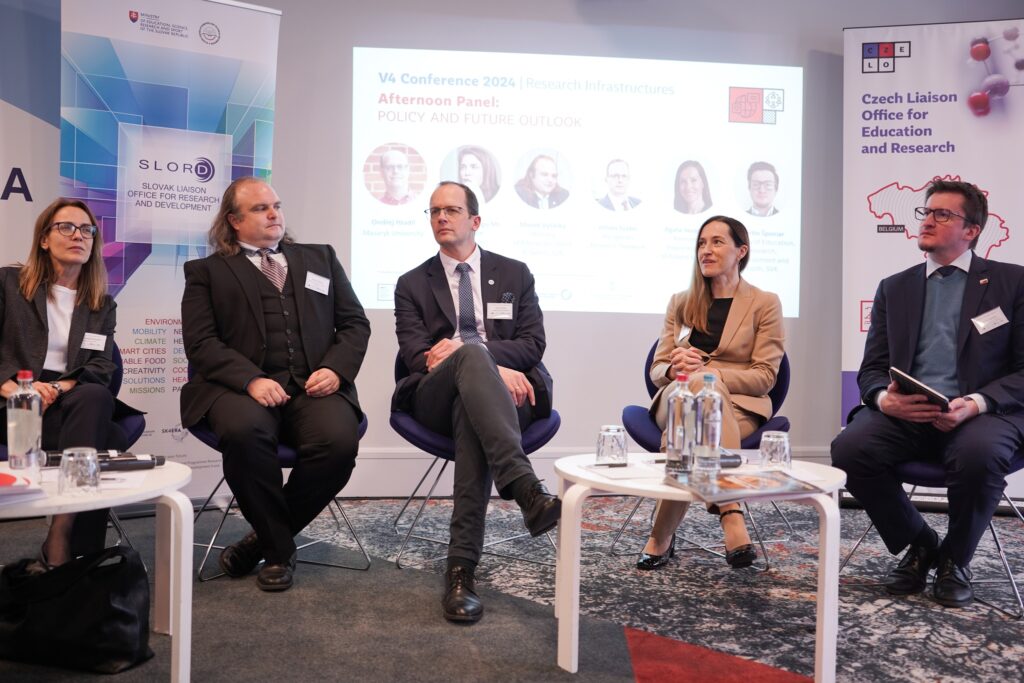
Patricia Postigo McLaughlin (Policy officer, DG RTD, European Commission)
Martin Šponiar (Ministry of Education, Research, Development and Youth of the Slovak Republic)
István Szabó (Hungarian Research Network)
Marek Vyšinka (Ministry of Education, Youth & Sports, Czech Republic)
The second round of the discussion panel focused on the role of policy declarations in support of infrastructures. The panellist agreed that declarations of support for research infrastructures send clear messages and show the direction the community wants to take. Patricia Postigo McLaughlin from the European Commission called for more specific declarations with tangible objectives.
At the end of the conference, the future of research infrastructures in relation to the 10th Framework Programme for Research and Innovation (i.e. the successor to Horizon Europe) was also discussed. István Szabó called for a transformation of the funding of research infrastructures, while Agata Janaszczyk from the Permanent Representation of Poland to the EU called for special support for widening, whose future is not yet certain: “In the framework of widening, we would like to see instruments that target ‘newcomers’ to the programme and attract new stakeholders.”
Patricia Postigo McLaughlin concluded the conference by presenting the European Commission’s perspective: “So far we have provided a transnational approach through funded projects. The question is, will we do it differently? What new legislative instruments will we choose and what part of the budget will we allocate to research infrastructures? The public consultation on the preparation of the Horizon Europe work programme for 2025 will open on 6 May and includes the topic of research infrastructures. I believe in the power of the public’s voice – the more people express themselves, the more likely the European Commission will take their views into account.”
The whole event gave a unique opportunity to share experience and good practices both among V4 countries, each with a different national RI landscape, and among participants representing the pan-European view on the financing and operations of the Research Infrastructure.
The next year’s V4 Conference will be organized in spring 2025 by the Polish Science Contact Agency PolSCA of the Polish Academy of Sciences in Brussels.
